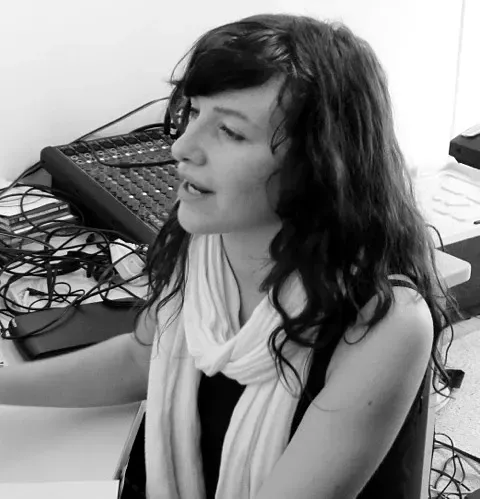Home recording
Written by

By Mike and Barney Chunn
The ‘fixation’ of a song is perfectly rendered when you record it. The ears are in action when the result is completed. You can close your eyes. The ears comprehend the myriad aspects and details of that representation. So it is logical that the evolution of recording equipment has progressed now to where simple pieces of equipment (a few!) in the home can achieve much.
When augmented with inexpensive studio equipment, a small room in your home is sufficient to stage a recording ‘event’. Ask Petra Bullock.
Petra Bullock, who recently won the Lion Foundation Songwriting Competition recorded her entry (one of 346 songs entered in the competition) – a song titled Is This Love. How did she do this? What recording studio programme does her school Takapuna Grammar in Auckland provide?
“Songwriting is a small part of our composition standard,” says Petra.
Small!!??!! What is amiss?
“Students are encouraged to use Sibelius as evidence of knowledge. But students without an understanding of music theory would struggle in some schools I believe. A recording production standard would be absolutely brilliant, as this particular field is not currently part of the curriculum. I spend hours in my home studio producing my own music. If this could be linked to NCEA, that would encourage young musicians to improve their production skills. We don’t visit recording studios. This would also be great … a chance for students to see what lies behind the recording of music would be beneficial for the growth of the songwriter."
So Petra with her head full of songs has assembled a home studio. In essence a computer, pair of speakers and a keyboard. Back to you Petra.
“My dad has played a significant role in building up our home studio. He has a vast knowledge of recording equipment and the mechanics behind it. I guess I have learnt a lot through osmosis! I started recording back in 2008 with a basic program 'Powertracks' and then Dad decided to upgrade to 'Reaper,' which I have been using ever since. The equipment belongs to him, but I am slowly starting to scout for equipment of my own!!”
We asked Petra about her songwriting community on Auckland’s north shore. Her Takapuna Grammar friends are an integral sector of that and it is their shared musical focus that has lead them all to reach the heights they have. While songwriting isn’t fostered or focused on in their school music faculty, Petra through her successes has led the charge.
“There are some who record all of their tracks and EPs at home, and produce a quality product. I also have some mates who go straight to the studio to record the tracks. It is really personal preference. I hope this is not a generalization, but I have found that artists in NZ who wish to cater to the underground scene and appear on alternative radio tend to either record themselves or record at a lower budget studio (it's about the money!) but artists in NZ who wish to appear on mainstream radio all record professionally, as to smooth the final product to that professional level which is VITAL when competing with international artists. I believe it is all about skill level and money. The best possible way to record, I think, is to record yourself and be educated so you ran produce your own music up to a professional level."
So why isn’t the craft of recording songs a curriculum priority?
“The craft of recording and producing should be part of the curriculum!! It is vital to acknowledge the skill and creativity involved not just in songwriting but the art of producing as well!! With NCEA credits in the Play It Strange competitions being another motivation for aspiring songwriters, this will encourage home recordings and songwriters will increasingly gain a rich wealth of knowledge when it comes to recording and producing. And this can be applied to future music.”
Petra agrees that the best place to start home recording is on a single keyboard that carries a number of recording software capabilities. There are single keyboards that allow a songwriter to multi-track quality recordings and bring in effects, loops and samples.
They are also perfect for quickly putting down something special just as is comes, so you don’t lose it. It’s all about flexibility. Most these days come with pads too, which can be used for percussion, arpeggiation, and MIDI phrases. With the technology available, the inbuilt sounds (samples) are amazing. What’s best, they’re also really easy to use. They are a great foundation for a home recording set up; perfect for getting a great live sound, and with a huge scope of both inbuilt sounds, they covers everything you would ever need. (The Rockshop has a great range of these types of keyboards, and the excellent crew there can help you find which one is best for your needs.)
And so back to school - the weaving of recording and songwriting into the NZ music curriculum looks likely to be one where a young generation of writers and studio technicians bring their craft to the fore in their own pursuit of careers as teachers.
Or else – perhaps songwriting, stage performance and recording are, like most sports, part of participation on a ‘playing field’ and best kept away from whiteboards, curriculums and assignments.